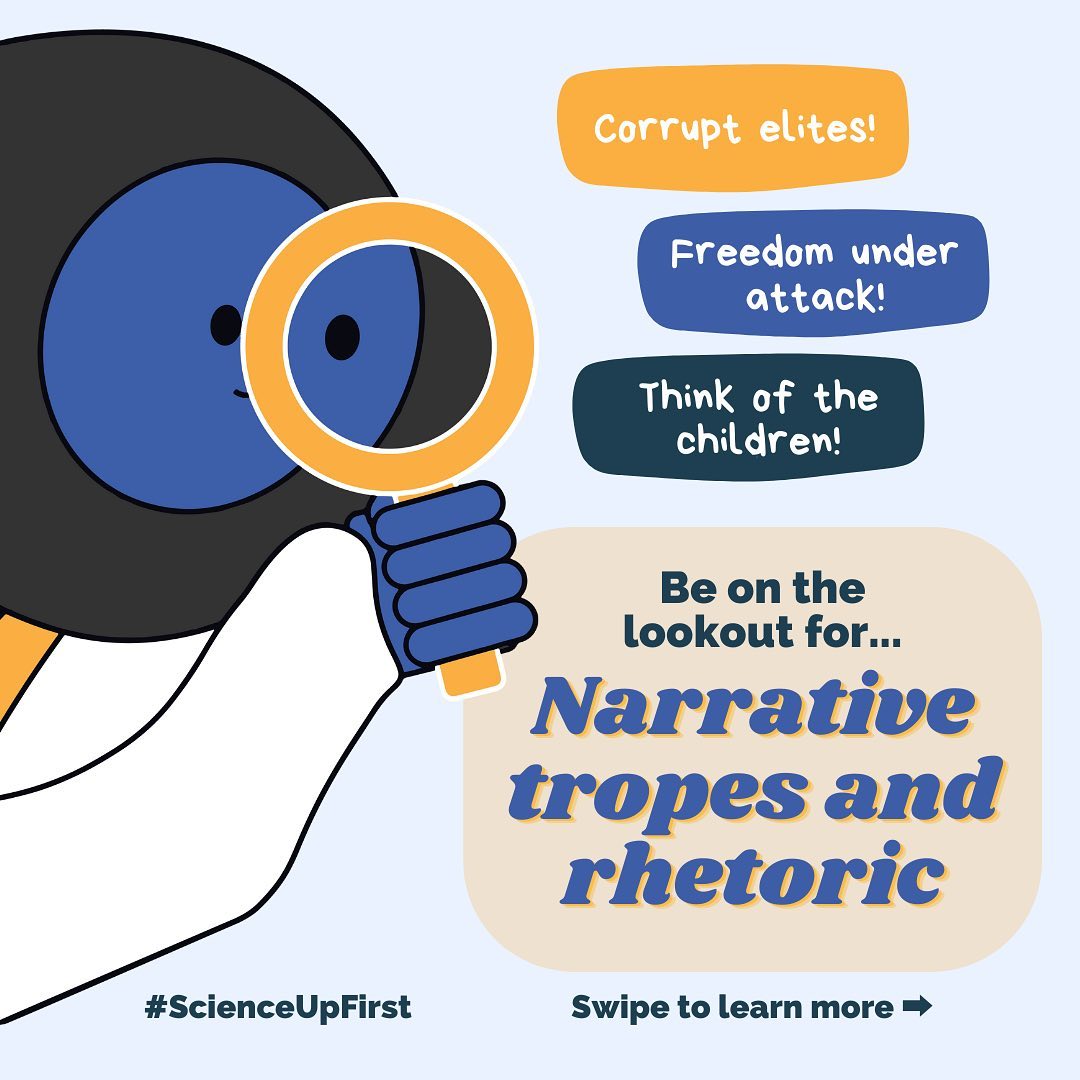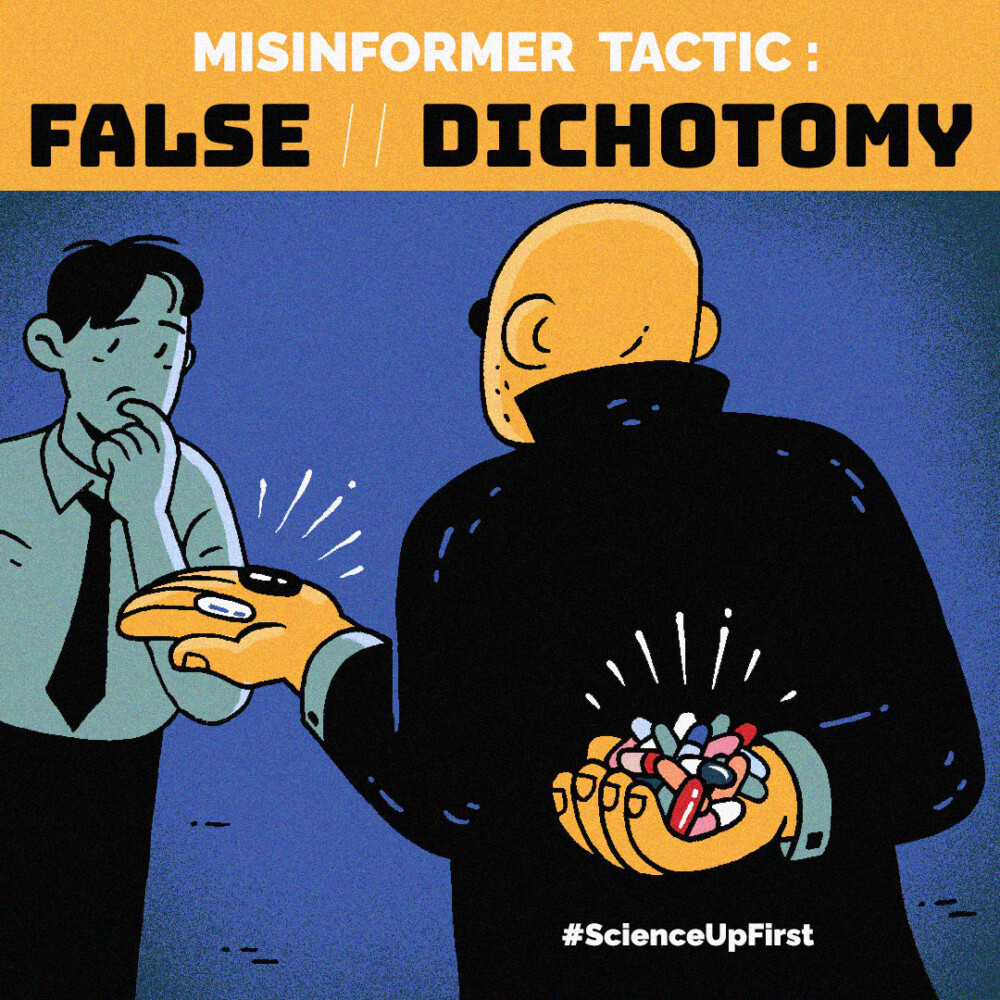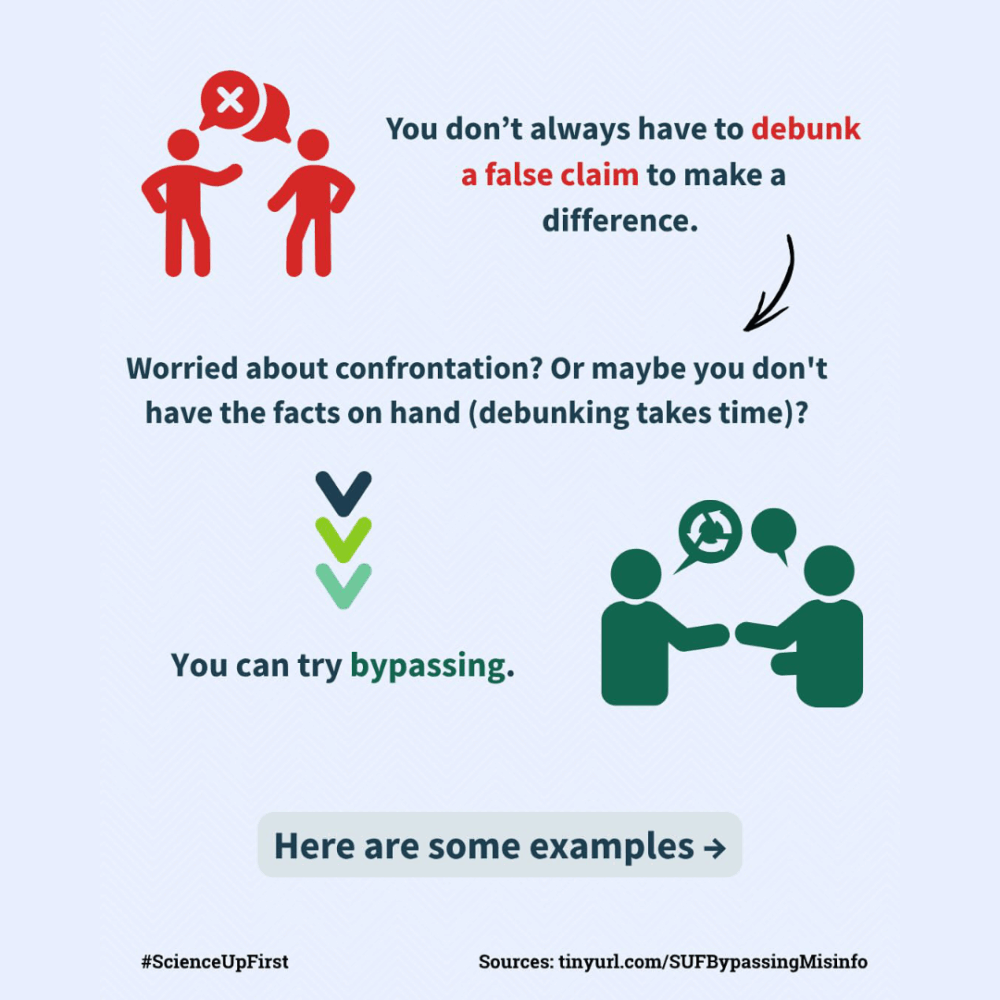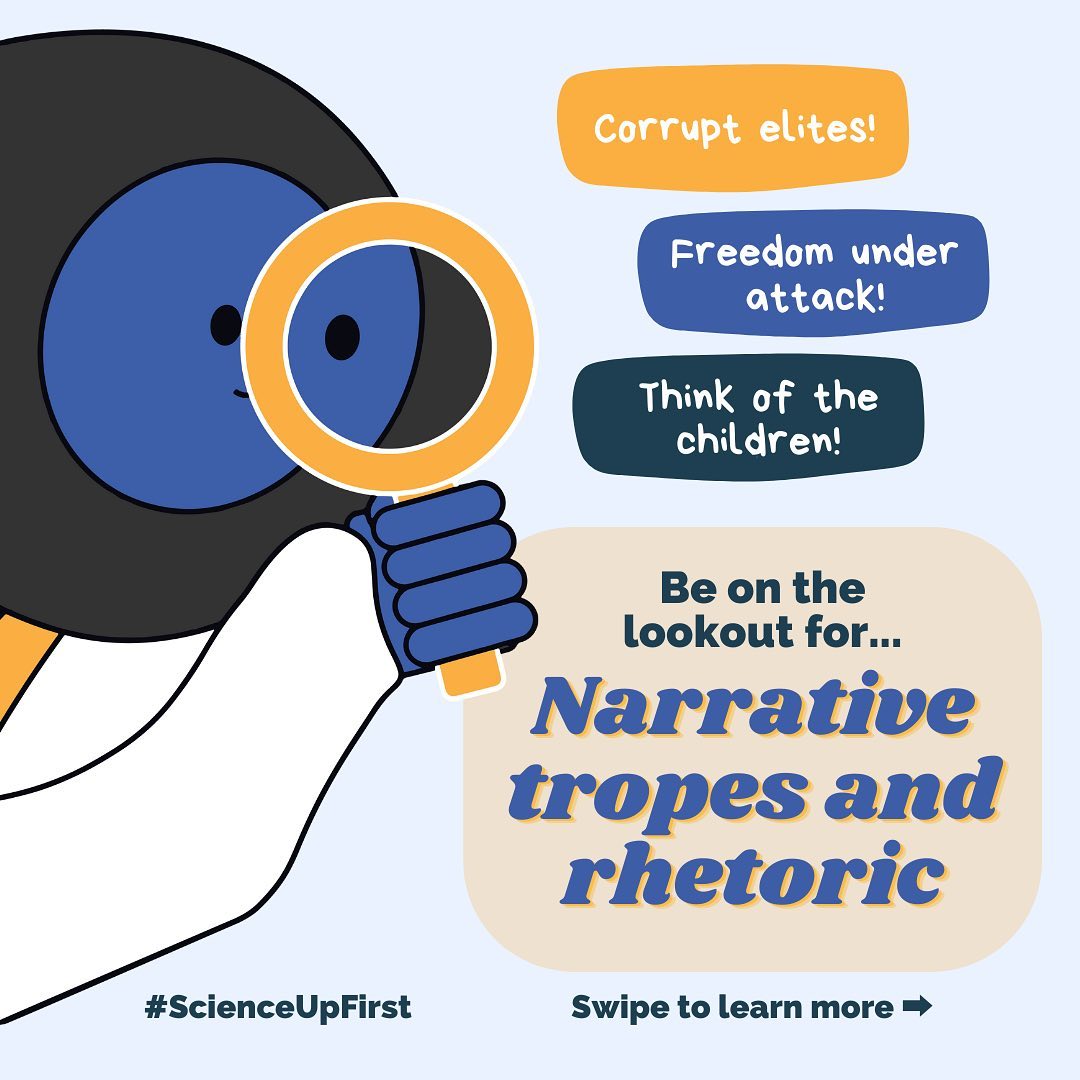
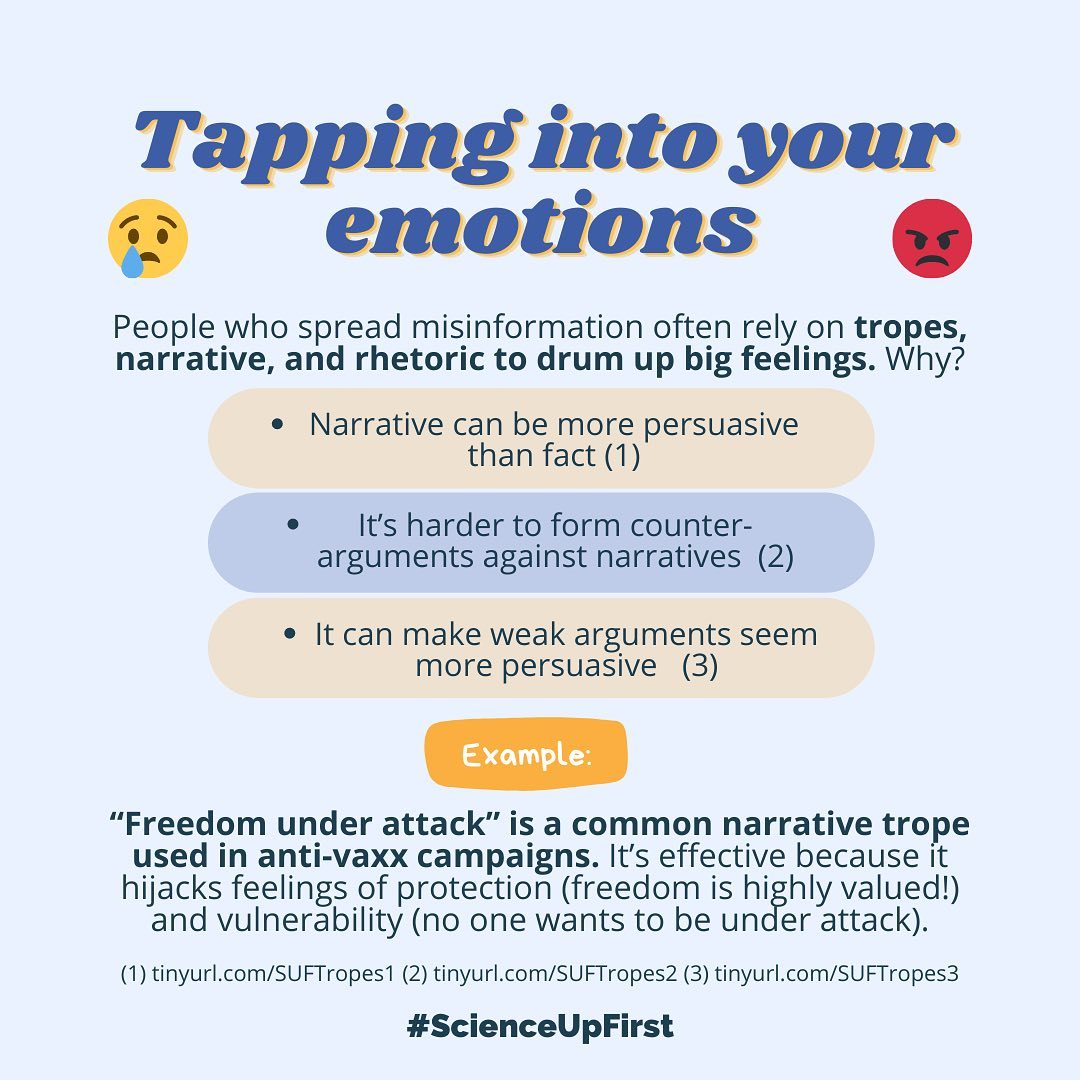
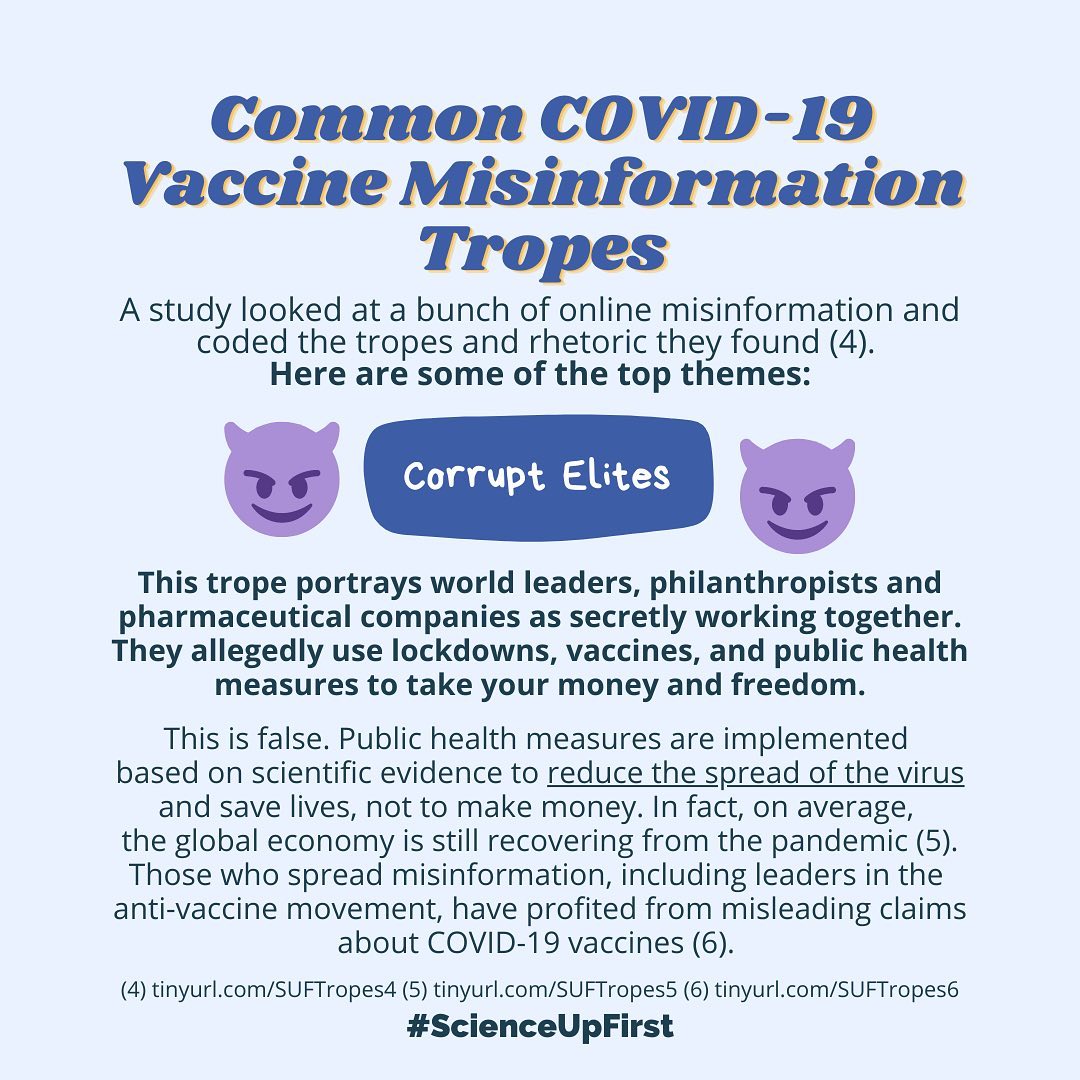
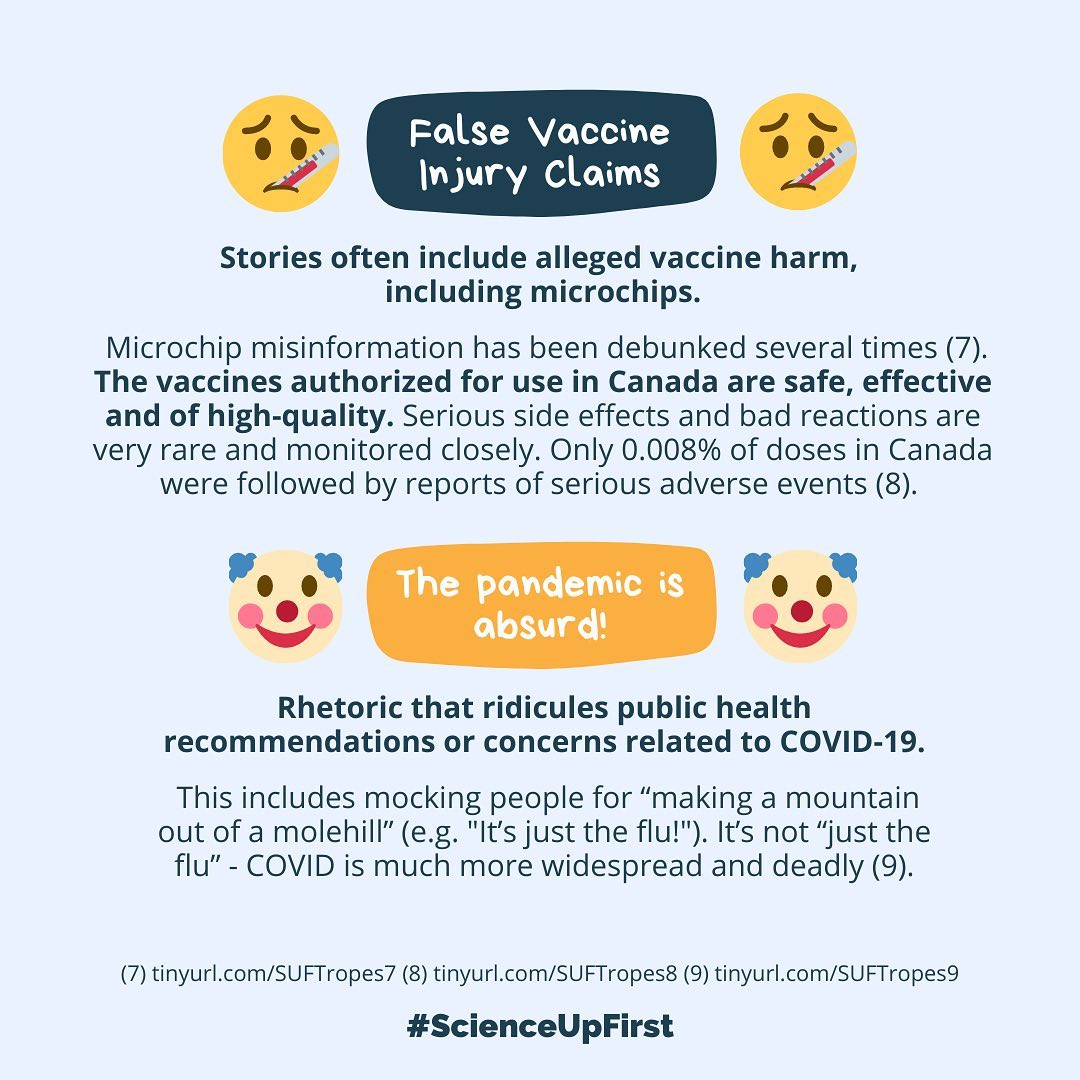
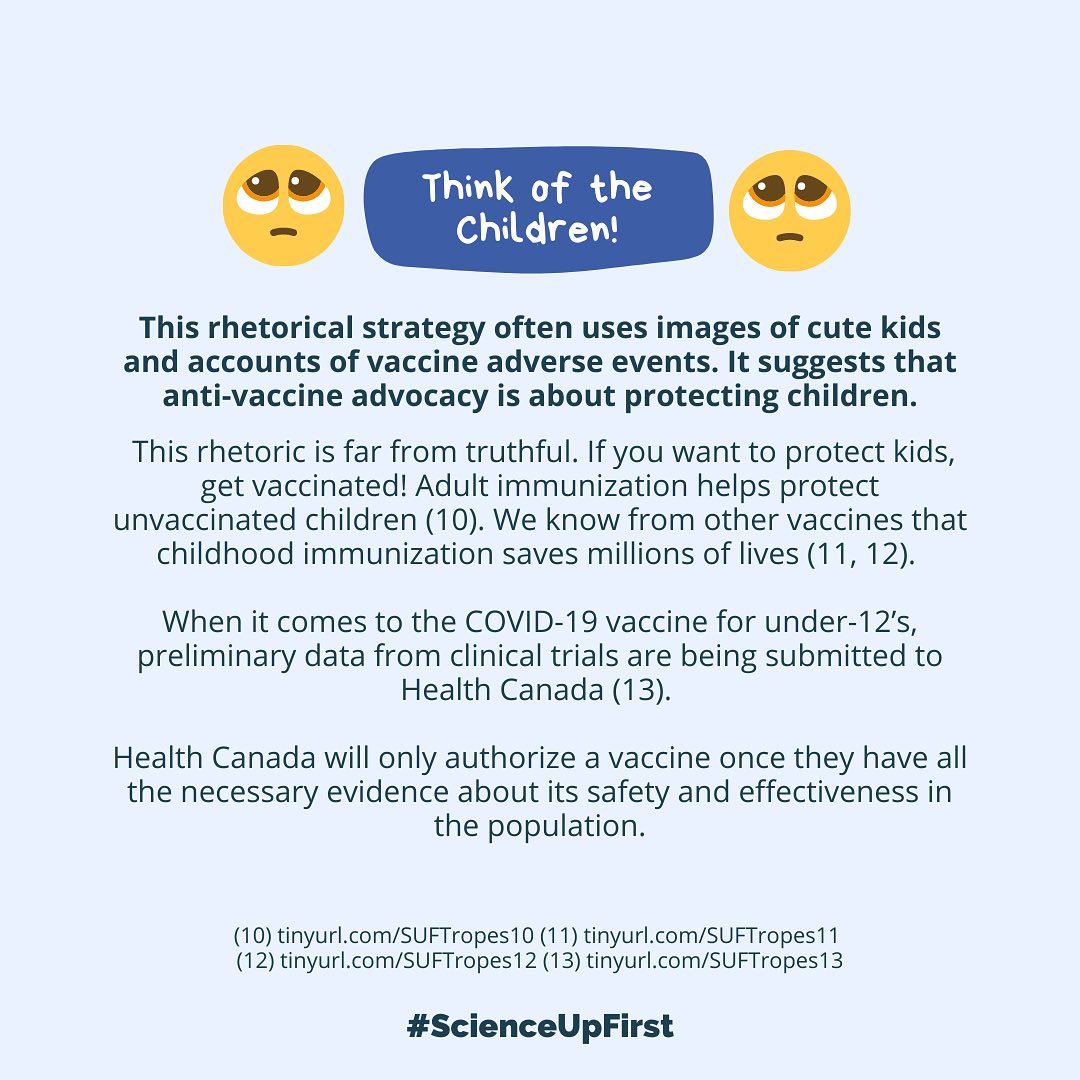
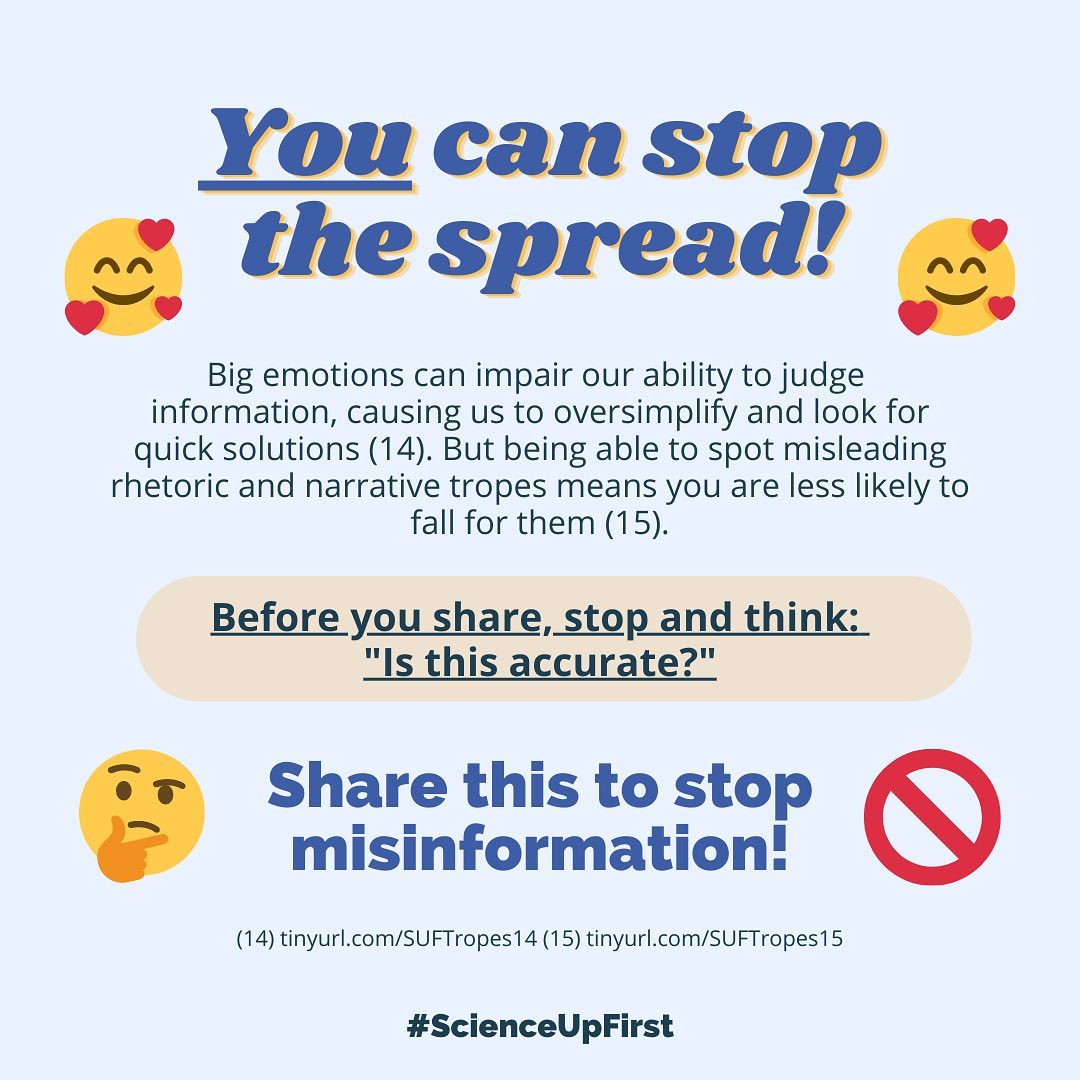
Let’s face it, misinformation is good at getting under your skin.
That’s why we’ve put together some of the most common tropes used against vaccination, and explanations on why they’re false.
Knowing these tropes before you see them helps stop misinformation in its tracks!
Share this post to stop misinformation. ✋
Share our original Tweet!
Have you seen any of these tropes online? Misinformers often rely on the same narratives against vaccination. Check out this thread to see what they are, and why they’re wrong!#ScienceUpFirst
[1/6] pic.twitter.com/0zjxLoNvyN
— ScienceUpFirst | LaScienceD’abord (@ScienceUpFirst) October 14, 2021
View our original Instagram Post!
View this post on Instagram
- What works best: Objective statistics or a personal testimonial? An assessment of the persuasive effects of different types of message evidence on risk perception.
- Using Drama to Persuade
- Self-Referencing and Persuasion: Narrative Transportation versus Analytical Elaboration
- Development of a Codebook of Online Anti-Vaccination Rhetoric to Manage COVID-19 Vaccine Misinformation
- The Global Economy: on Track for Strong but Uneven Growth as COVID-19 Still Weighs
- For Some Anti-Vaccine Advocates, Misinformation Is Part Of A Business
- Coronavirus: Bill Gates ‘microchip’ conspiracy theory and other vaccine claims fact-checked
- Reported side effects following COVID-19 vaccination in Canada
- Similarities and Differences between Flu and COVID-19
- Community-level evidence for SARS-CoV-2 vaccine protection of unvaccinated individuals
- Vaccines work: Case counts of 6 vaccine-preventable diseases before and after routine vaccination
- Estimating the health impact of vaccination against ten pathogens in 98 low-income and middle-income countries from 2000 to 2030: a modelling study
- Pfizer submits preliminary data to Health Canada for kids’ COVID-19 vaccine
- Anger increases susceptibility to misinformation
- Does Debunking Work? Correcting COVID-19 Misinformation on Social Media

